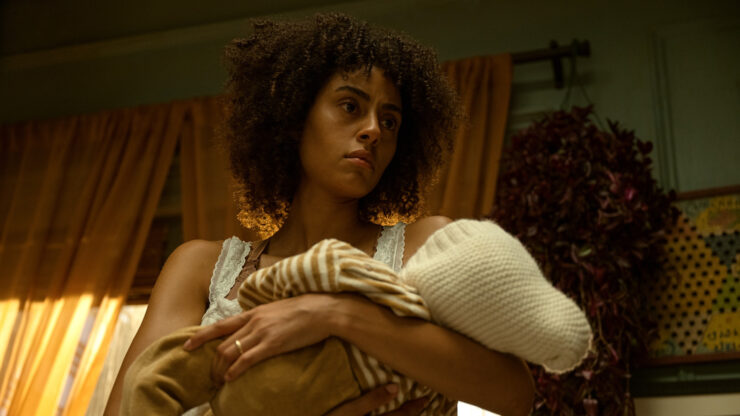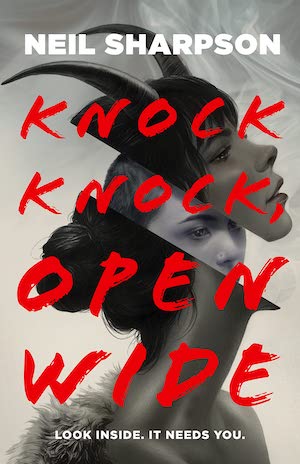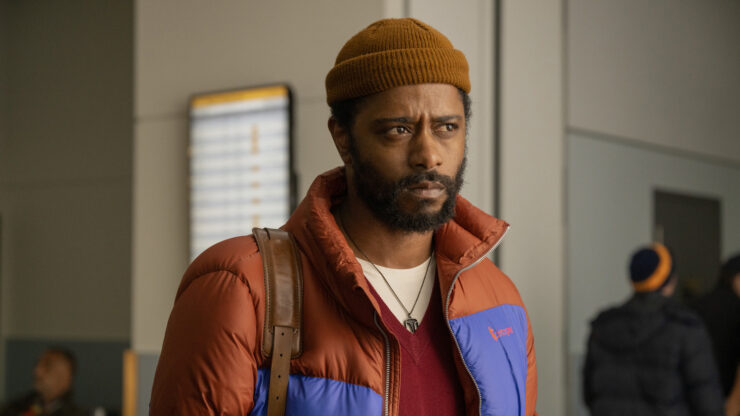“Once upon a time.” A fairy tale always begins the same way, so it’s fitting that these are the first words of the new Apple TV+ show The Changeling. Based on the 2017 novel of the same name by Victor LaValle, this is both a fairy tale and a story about fairy tales. Once upon a time, a princess is driven from her homeland. She comes to a new kingdom where no one knows who she is. She has nothing and no one, until she catches the eye of a handsome prince. He rescues her from the drudgeries of life and they live happily ever after. Once upon a time, an orphan girl wanders the world looking for the heart that was stolen from her. A handsome prince offers her honeyed words and gifts, and she turns them all down. Finally he offers her his heart and she accepts, and they live happily ever after.
That is how we want the stories to go in the modern age, but the original stories were never quite so moralistic or romantic. The old stories, the ones that were even darker than what the Brothers Grimm jotted down, are stories of blood and theft and sexual violence. Happy endings are not a given; the best you can hope for is to survive mostly intact. LaValle’s novel mines the horror in the folkloric foundations of fairy tales to stunning effect. The first three episodes of the 2023 television adaptation are good, but don’t quite reach the same heights.
One of the challenges of book adaptations is what to do with the structure. Personally, I prefer adaptations that abandon the book and do something entirely new. For example, I will die on the hill that the first season of American Gods was nearly perfect television largely because it was its own thing and the second and third seasons collapsed under the weight of trying to circle back to the strictures of the novel. The Changeling’s first three episodes adhere very closely to the original novel; whether that was for better or worse will vary by viewer.
We begin with Lillian Kagwa (Alexis Louder and later Adina Porter) fleeing political turmoil in Uganda. She immigrates to the US, where she meets a white probation agent, Brian (Jared Abrahamson) who sweeps her off her feet. Their relationship fractures after their son Apollo (Lakeith Stanfield) is born and he vanishes from their lives forever. Then we pick up with Apollo as an adult. A rare books seller by trade, he meets Emma (Clark Backo), a beautiful librarian he pursues respectfully but persistently. They eventually marry and have a child of their own, named after his grandfather.

Apollo is determined to be a better father than the one who abandoned him. He dotes on baby Brian, posts endless photos of him on social media, and treats him as precious as fine china. Emma, on the other hand, spirals out. She yearns to connect with her son, but there’s a crack in their relationship. Over time, that crack widens into a chasm. Emma becomes more frantic, until she commits a terrible act of violence that shatters their happily ever. The third episode ends with Apollo meeting William Wheeler (Samuel Herring), a white divorcé who will irrevocably change the course of his fairy tale. The parallels between Apollo, Emma, and baby Brian and Lillian, Brian, and baby Apollo are more apparent in the novel, but if you pay close attention, you’ll see the echoes colliding into each other across time.
Those who haven’t read the book may find the first three episodes confounding. The first chunk of the story jumps around in time in a way that works well in print but feels disjointed on film. This part of the story is less like a horror story than a family drama. It’s this early section that worried me the most about the adaptation. Showrunner and series writer Kelly Marcel dropped in many scenes or moments from the novel without much explanation or context, giving the episodes an unmoored vibe. For me, LaValle’s novel is so compelling, that I didn’t mind the literal page-to-screen translation as much as I usually would, even though overall it wasn’t as strong as it could have been. These three episodes work best in a marathon, given their content and tone, but if the rest of the season is as close to the novel as these are, switching to a weekly release is a smart choice, tension-wise.
Buy the Book


Knock Knock Open Wide
The series rests on the fantastic work of Stanfield and Backo. They make all the right acting choices, and their intensity and energy more than lives up to LaValle’s creations. Backo pulls off Emma’s descent into brutality without falling into stereotypical hysteria. Apollo, with his mantra of “I am the god Apollo,” his pestering of Emma, and his obsession with Brian could feel cringey in the hands of a lesser actor, but Stanfield has the uncanny ability to make him charming with a side of subtle unsettling. Louder and Porter are also stunning, even though they don’t get nearly enough to do in the first three episodes. I’m undecided on LaValle’s narration. A story like this, particularly with the fairy tale themes, practically demands a narrator who sounds like they’re reading a bedtime story to a fussy yet enraptured listener, but the voiceover also saps some of the energy from the pacing.
We have to talk about the set design and costuming. Everything is this weird juxtaposition of old-timey and contemporary. The clothing is layered and textural, with lots of patterns and a mix of heavy and light fabrics. The sets are just as jumbled, with cluttered apartments and wood paneled televisions. Apollo and Emma have smartphones, but the shape and operating system look like they were designed in the early 2010s. The clash of old and new melds together in a sort of dissonant timelessness and is yet another way the show leaves the viewer grasping for something just out of reach (in a good way!).
For a show (season?) that is only eight episodes long, spending so much time place-setting probably isn’t the best use of its time. That said, knowing where the story is going, I’m excited to keep watching. There are so many things I can’t wait to talk about, from parenting to being biracial to the way Western society treats struggling mothers and victims of domestic violence to immigration and the American Dream to labor exploitation to generational trauma to who is really the hero of this story. I’ll see you next week, same time, same place, for episode four.
Alex Brown is a Hugo-nominated and Ignyte award-winning critic who writes about speculative fiction, librarianship, and Black history. Find them on twitter (@QueenOfRats), bluesky (@bookjockeyalex), instagram (@bookjockeyalex), and their blog (bookjockeyalex.com).










